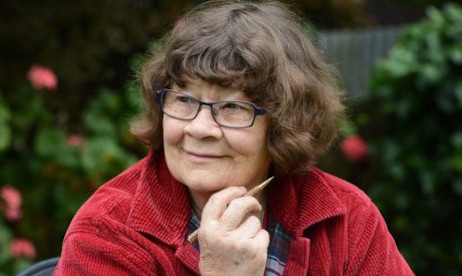Let’s imagine a circle like a large bicycle wheel. The circle has paths resembling spokes converging in the centre. On the outer edge, my path may seem at a distance from other paths, maybe even opposite; but as I progress towards the centre, the other paths come closer until all unite as one.
The circle, of course, has no circumference because it is God, and the paths are our awareness of God through religious teaching and life experience. When we near the centre where the paths converge in light, we break through to the mystical stage where all religions leave behind their cultural differences, and say the same things: There is nothing outside of God, and God is unconditional love.
This discovery has been the result of a long journey for me, a Christian brought up in an “us and them” belief system. But divided thinking is usually a part of early journey, and eventually those early attitudes bring understanding of intolerance in others. They also create awareness that every stage of faith journey is a teacher and every stage is right.
At one stage I thought there was harm in learning about other world religions. That was when my own faith was immature. As I grew, I discovered that instead of undermining my faith, other religions actually affirmed it.
Cultural details may be different but in every religion, spiritual growth goes through the same stages and has the same movement from head to heart.
In the fullness of our Catholic teaching, let’s look at an example. We can reflect on the growth of wisdom through the choices we make between good and evil.
Reconciliation is also of major importance in the other Middle Eastern religions.
In the Jewish Hassid tradition it is said that people are born with two impulses: yetzer harah, the inclination towards evil, and yetzer hatov, the inclination towards good. Both of these come from God. The yetzer harah in itself is not evil. Rather it is a tendency to evil when it’s not balanced with the good impulse yetzer hatov.
One could be called the ‘selfish impulse,’ and the other the ‘selfless’ impulse. The first only becomes evil when the unselfish is lacking. When we act for both self and other, the yetzer harah is given direction; it follows the lead of the good and lends its energy to attaining the good.
The yetzer harah in us – which we would probably rename “ego” – is necessary for balanced growth.
From the Sufi tradition of Islam, comes a poem by Jalaluddin Rumi. For me, this beautiful poem expresses a very “Catholic” understanding of God’s unconditional compassion in Christ Jesus.
Come, come whoever you are,
wanderer, worshiper, lover of leaving.
It doesn’t matter.
Ours is not a caravan of despair.
Come, even if you have broken your vows
a thousand times.
Come, yet again, come, come.
These writings sound very familiar to us – truth echoing the gospels and Pope Francis. They belong in the light at the centre of the circle.
- Joy Cowley is a wife, mother, grandmother, great-grandmother and retreat facilitator.
